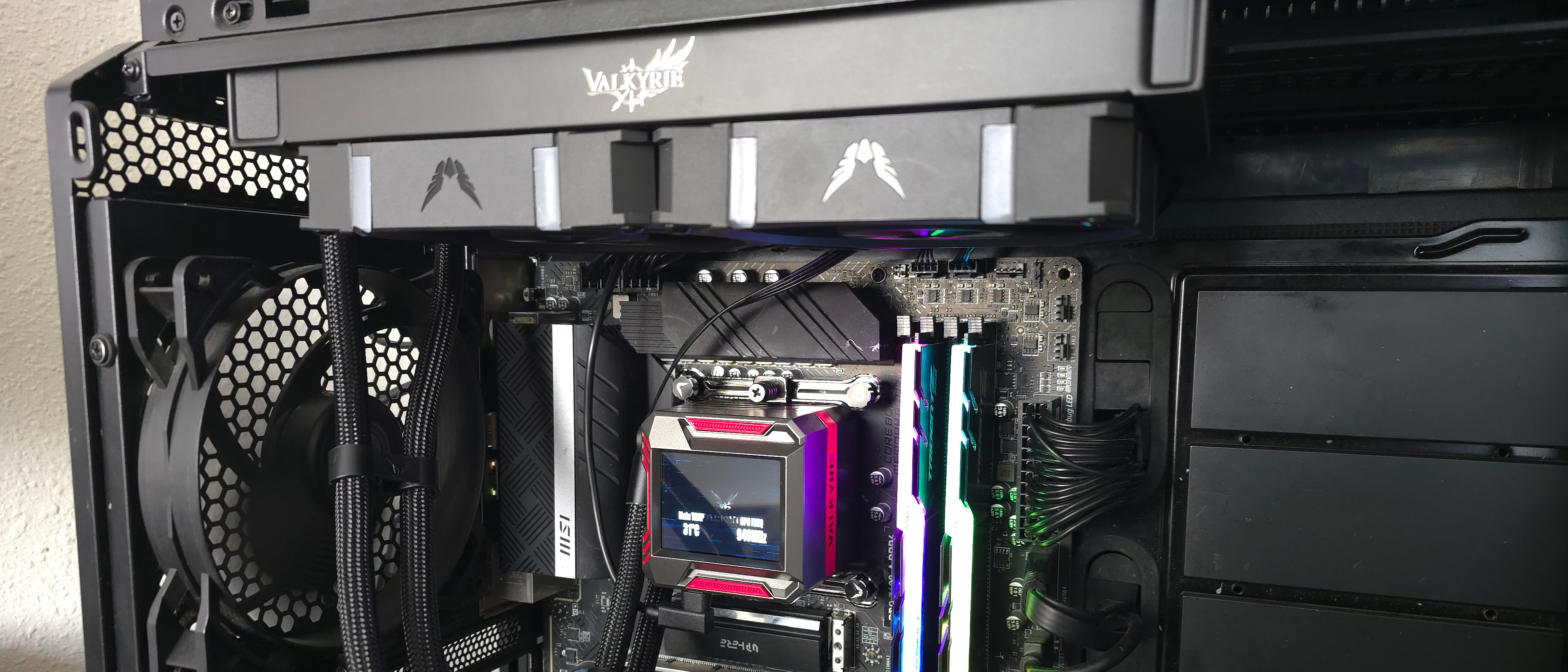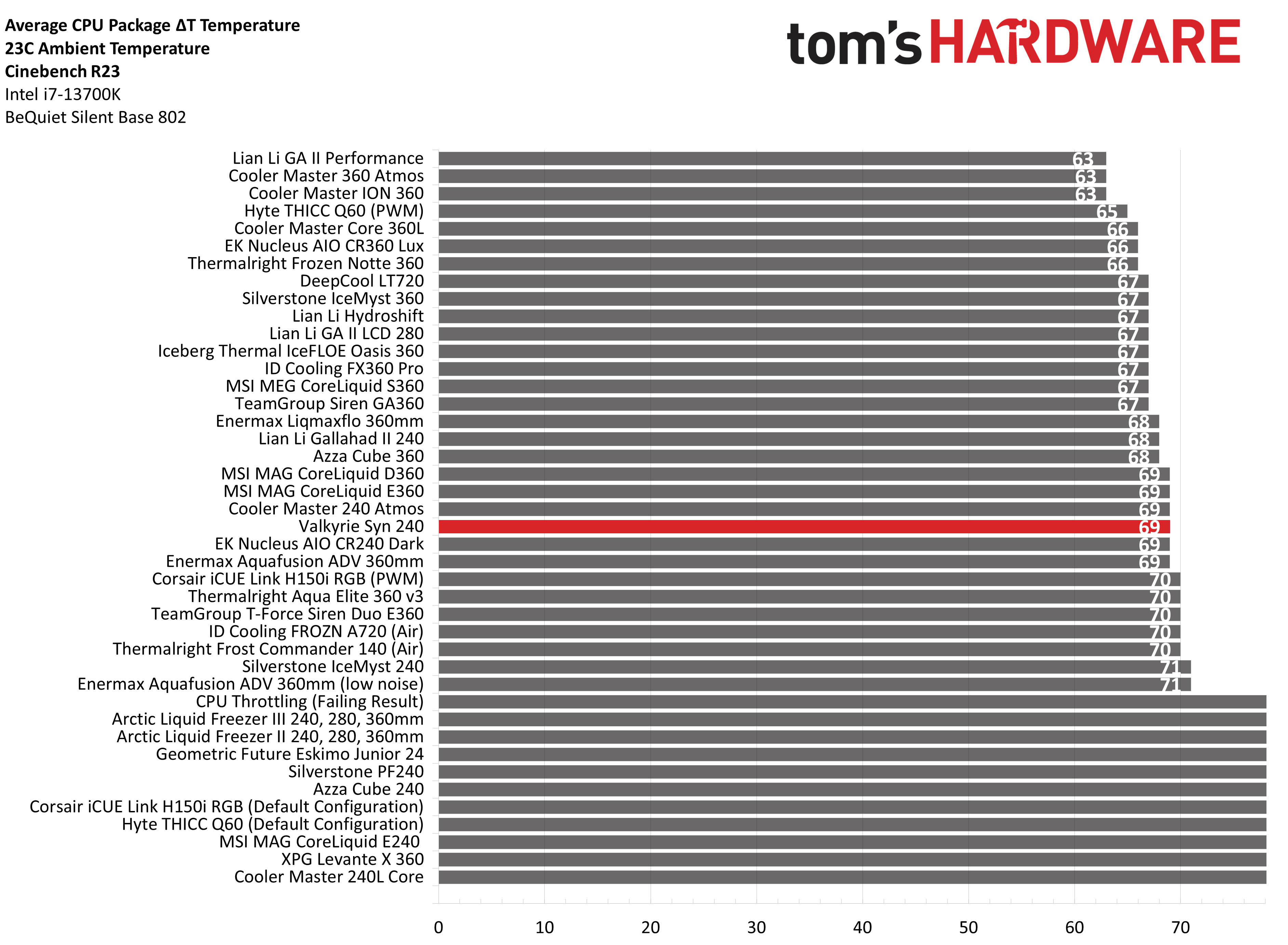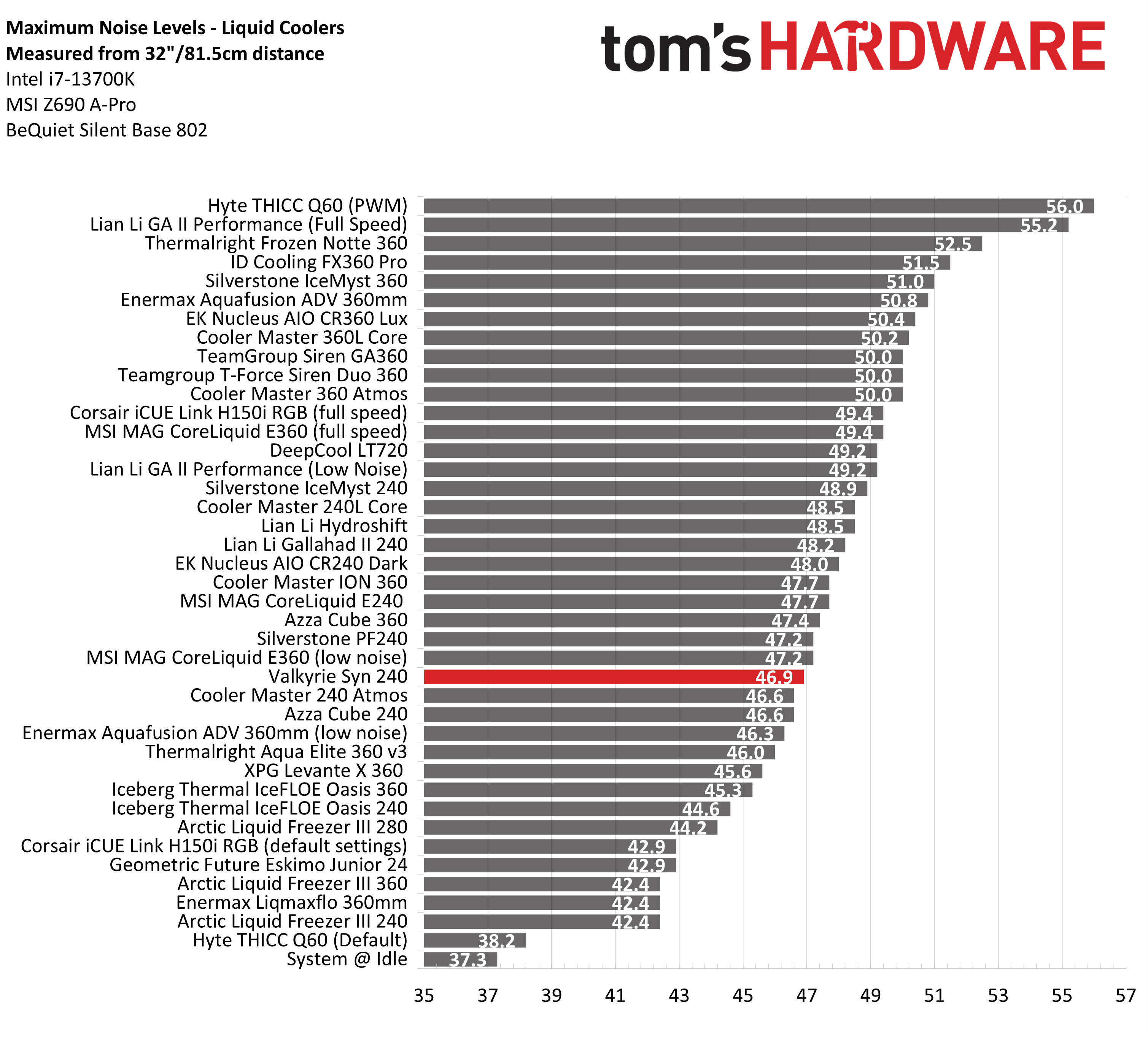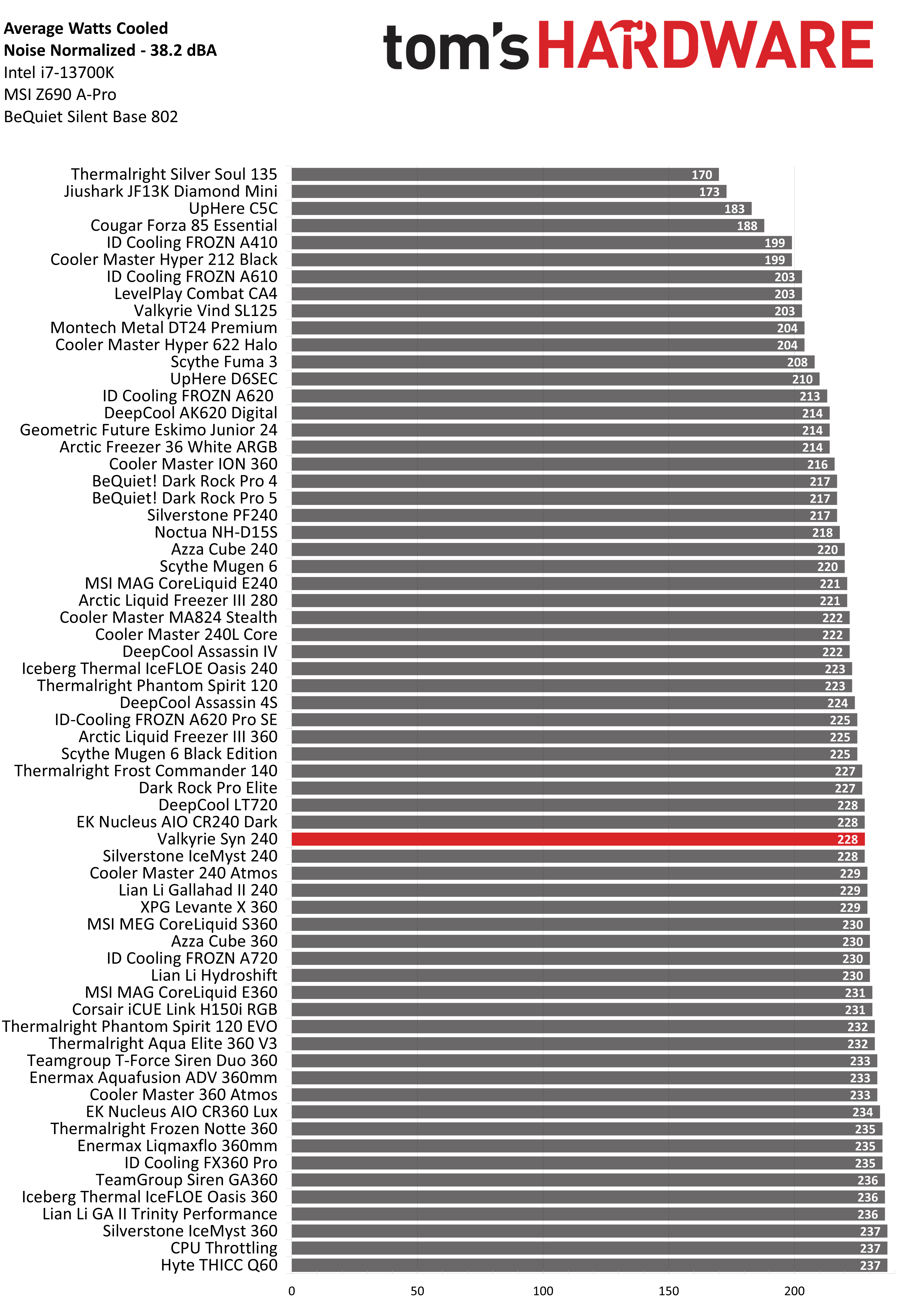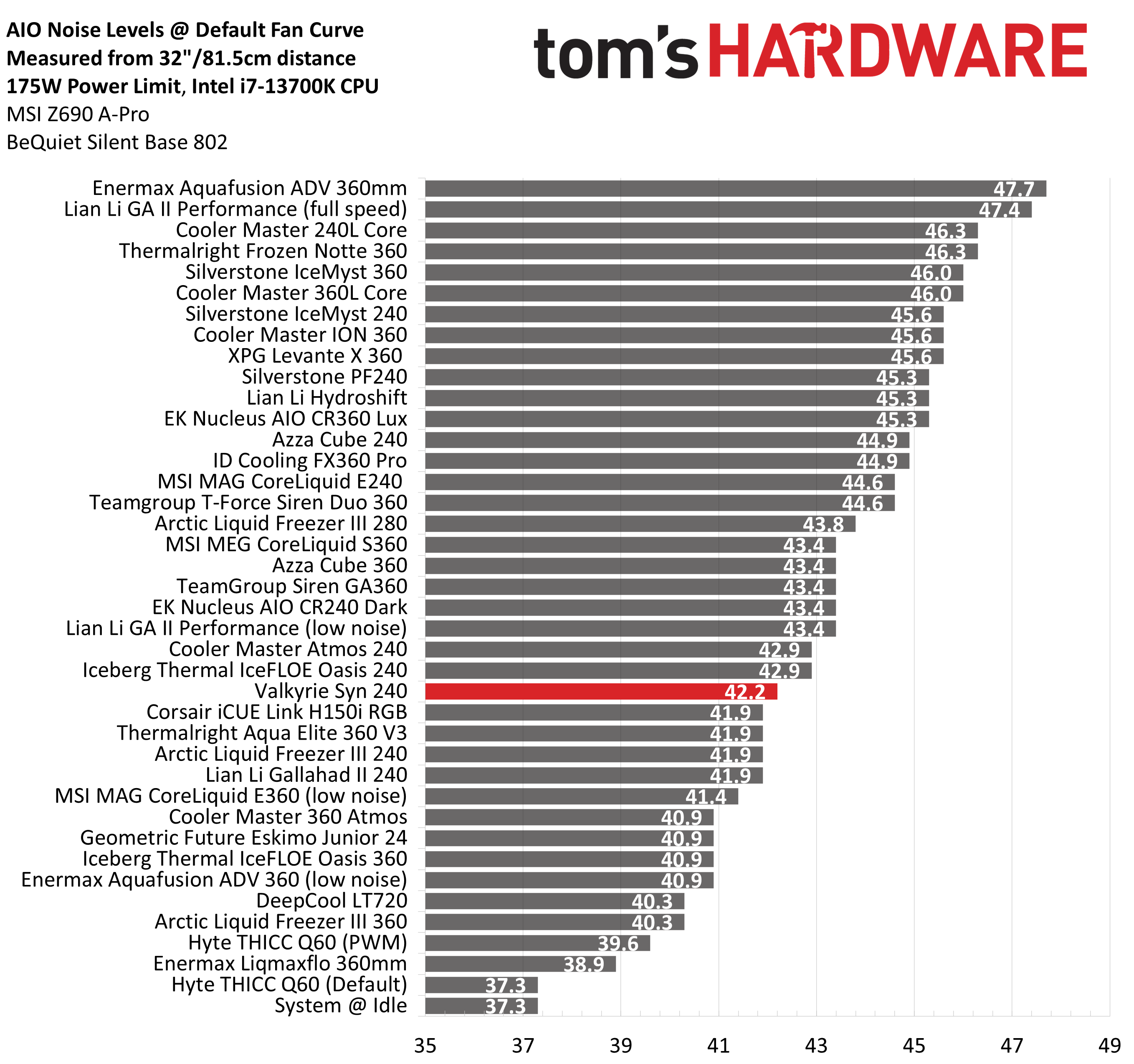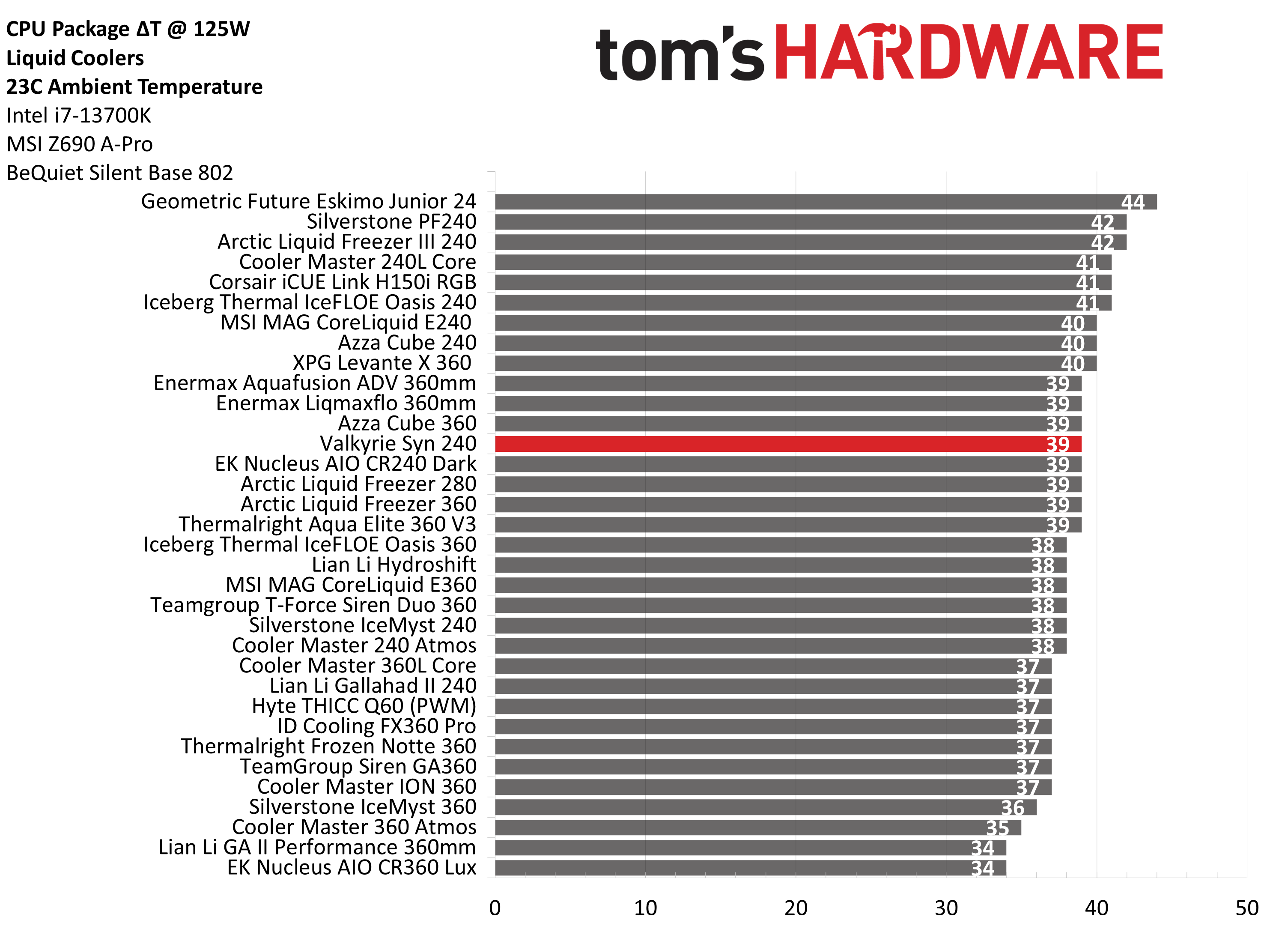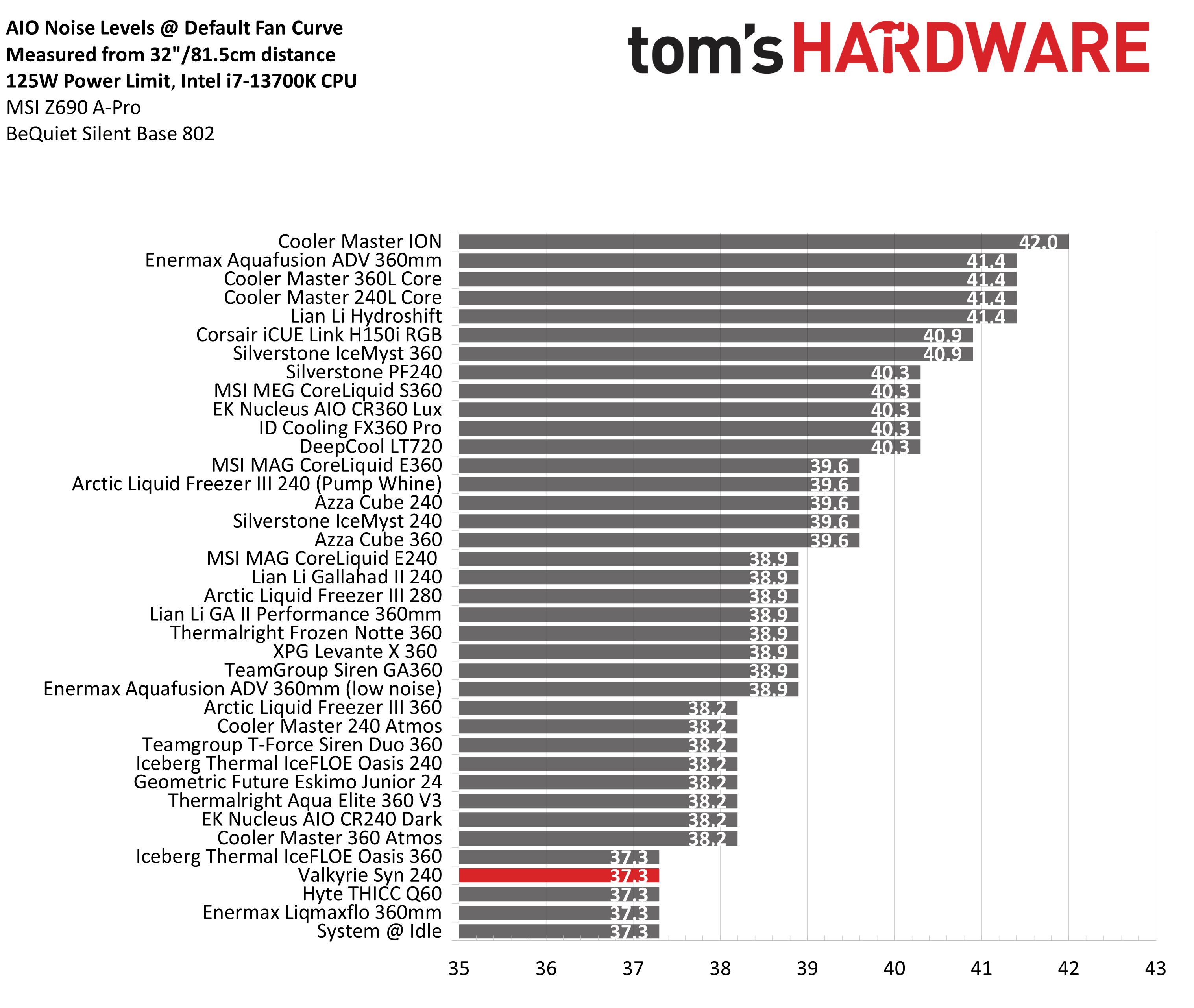Why you can trust Tom's Hardware
Thermal results without power limits
Without power limits enforced on Intel’s i7-13700K, the CPU will hit its peak temperature (TJ Max) and thermally throttle with even the strongest of air coolers. When the CPU reaches its peak temperature, I’ve measured the CPU package power to determine the maximum wattage cooled to best compare their performance.
The general exception to this comes with the strongest AIOs on the market, which can keep Intel’s i7-13700K under TJ Max. This is no small task, as many 360mm AIOs fail this test.
Valkyrie’s Syn 240 is able to keep the CPU under TJ Max in this test, reaching 69 degrees over ambient temperature. This is in line with other top-performing 240mm AIOs on the market.
To achieve this level of performance, the unrestricted fans run up to 46.9 dBA. This is quieter than most other 240mm AIOs capable of this level of performance, but there are a few that run at lower noise levels – like Iceberg Thermal’s IceFLOE Oasis 240.
Thermal results with noise normalized to 38.2 dBA
Finding the right balance between fan noise levels and cooling performance is important. While running fans at full speed can improve cooling capacity to some extent, the benefits are limited and many users prefer a quieter system.
With this noise-normalized test, I’ve set noise levels to 38.2 dba. This level of noise is a low volume level, but slightly audible to most people.
With the noise of the fans limited to 38.2 dBA, the Syn 240 cooled 228W. This is within expectations, in line with results from other top-performing 240mm AIOs.
Get Tom's Hardware's best news and in-depth reviews, straight to your inbox.
175W Cinebench Results
Most coolers on the market can keep Intel’s i7-13700K under its peak temperature if the power consumption is limited, so for this test, we’ll be looking at the CPU’s actual temperature.
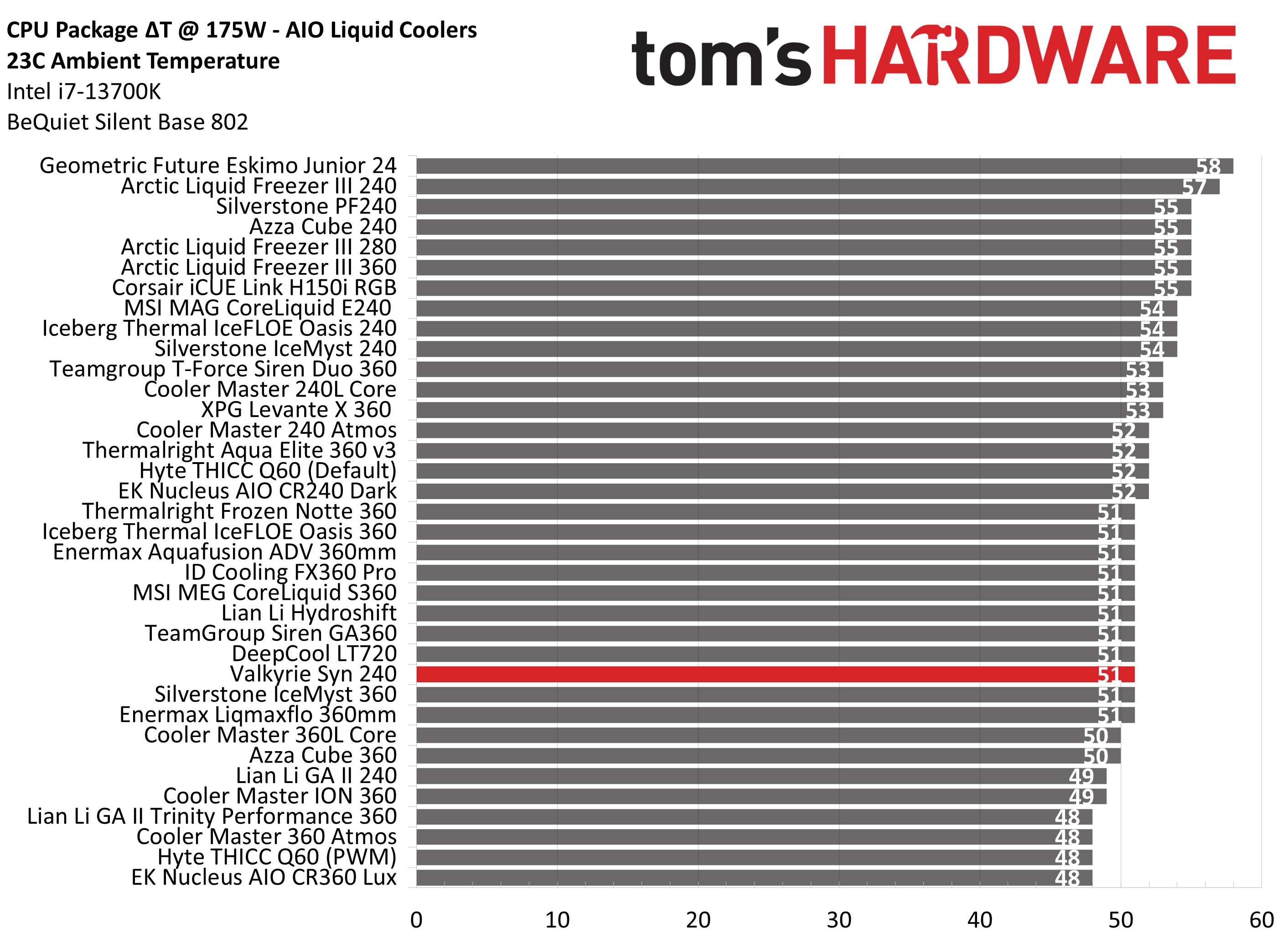
Valkyrie’s Syn 240 only reached 51 degrees over ambient with a limited 175W workload, our second-best result from a 240mm AIO. It reaches 42.2 dBA in this workload, which is in the middle of results for 240mm liquid coolers. A few alternative options will reach as low as 40.9 dBA, but most 240mm AIOs will run louder than Valkyrie’s Syn 240 in this scenario.
125W Cinebench Results
The lowest power limit I test with Raptor Lake CPUs is 125W. This is a high enough limit to allow the CPU to maintain its base clock speeds even in the most intensive tests, and most coolers should be capable of keeping the CPU below TJ Max (the max temperature before throttling) – even low-end coolers.
Even Intel’s stock cooler can handle a load like this with ease, so thermals really don’t matter here. Noise levels, rather than CPU temperature, are the most important factor here.
When it comes to noise levels in common scenarios, the Syn 240 is unmatched! It operates quieter than the noise of my system fans, the first 240mm AIO I’ve tested to do so.
Conclusion
There’s a lot to like about Valkyrie’s Syn AIO. It offers quieter performance than competitors in low-power scenarios, has the unique distinction of being the first AIO (that I know of, at least) with upgradable storage, and the packaging is much fancier than any other AIO on the market. However, the “beta” feel of the software and the unit’s high cost make it hard to recommend against competitors.

Albert Thomas is a contributor for Tom’s Hardware, primarily covering CPU cooling reviews.
-
thestryker Well they certainly aren't trying to break into the market with pricing like that. It's a really solid performer, but unless the aesthetic speaks to you I'm not sure why anyone would get it. Just the same I'm happy that we're getting AIO improvements from both the performance and budget ends lately.Reply
Looks like this heading got transposed from a prior review:
What I don’t like about the ION 360
